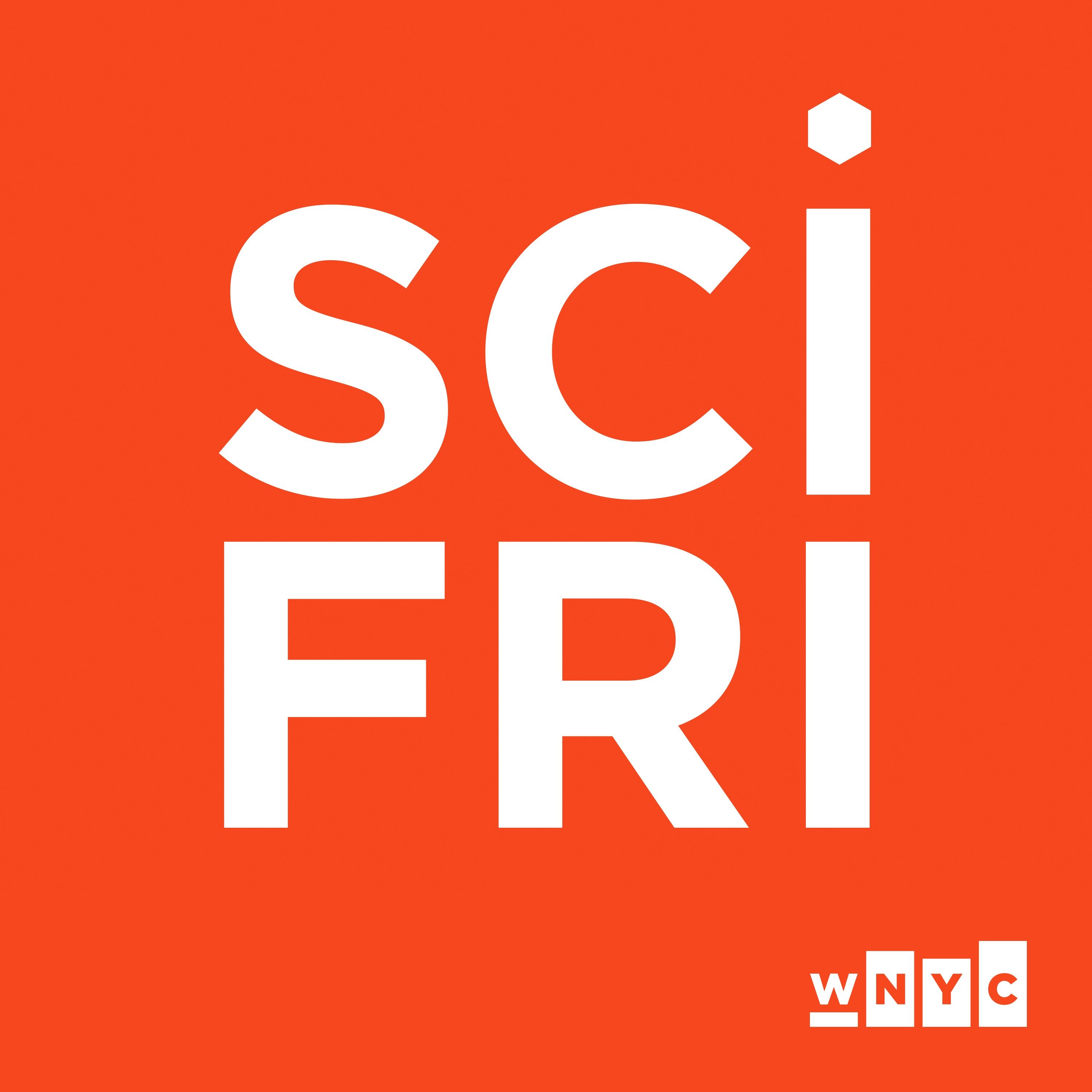

Science Friday
Science Friday and WNYC Studios
Covering the outer reaches of space to the tiniest microbes in our bodies, Science Friday is the source for entertaining and educational stories about science, technology, and other cool stuff.
Episodes
Mentioned books

Dec 9, 2025 • 12min
Why Is Bubonic Plague Still With Us?
Viveka Vadyvaloo, a plague researcher and director of the Allen School for Global Health, discusses the surprising persistence of bubonic plague today. She explains how Yersinia pestis established itself in rodent populations worldwide and how humans can become incidental hosts through flea bites. Vadyvaloo highlights the contrasts in treatment accessibility, with wealthier regions benefiting from antibiotics while poorer areas face greater burdens. She also emphasizes the importance of understanding flea biology and potential management strategies in light of climate factors influencing outbreaks.

Dec 8, 2025 • 24min
Don’t Let Their Name Fool You—Sea Slugs Are Awesome
Marine biologist Dr. Patrick Krug, a professor at Cal State LA, dives into the vibrant world of sea slugs, revealing their breathtaking diversity—some are as tiny as a quarter, while others can weigh up to 30 pounds. He explores their unique feeding strategies, the fascinating ability to regenerate by detaching heads, and their stunning colors linked to chemical defenses. Krug also discusses kleptoplasty, where some slugs use stolen chloroplasts for photosynthesis, and shares insights on their reproductive quirks and contributions to neuroscience.

18 snips
Dec 5, 2025 • 12min
As Companies Build Data Centers For AI, Communities Push Back
In this discussion, Casey Crownhart, a senior climate reporter at MIT Technology Review, highlights the environmental implications of the booming data center industry. She reveals that some centers could demand triple the energy of entire cities, raising concerns about rising utility rates and community pushback. Casey delves into the decision-making behind site locations, power and water consumption, and the balancing act between corporate climate pledges and increased energy needs. This insightful conversation uncovers the complex challenges facing our tech-driven future.

Dec 4, 2025 • 18min
A Toast To Bats That Pollinate Agave, And Tracking Monarchs
Kristen Lear, Director of the Agave Restoration Initiative at Bat Conservation International, discusses the vital role of bats in pollinating agave plants, linking their conservation to tequila production and ecosystem health. Meanwhile, Dan Fagin, science journalist and director at NYU, reveals groundbreaking technology that tracks monarch butterflies' migrations using solar-powered tags. The conversation highlights the interdependence of species and the innovative approaches needed to protect them in the face of climate change.

Dec 3, 2025 • 16min
A Startling Plan To Save Spotted Owls—From Barred Owls
R.J. "Rocky" Gutierrez, an owl ecologist and professor emeritus, discusses the alarming threat barred owls pose to their spotted relatives in the Pacific Northwest. He advocates for a controversial plan to cull hundreds of thousands of barred owls, deeming it necessary for the survival of the spotted owl species. Rocky highlights the broader ecological impact of barred owls on other endangered species and explains the ethical dilemmas scientists face with such drastic measures. His insights reveal the complex interplay of conservation and human intervention.

Dec 2, 2025 • 13min
Can A Microbe Conservation Movement Take Off?
Microbial ecologist Jack Gilbert, co-chair of the IUCN's Microbial Conservation Specialist Group, delves into the urgent need for a global movement to conserve microbes. He highlights their crucial role in ecosystems while discussing their alarming decline, often unnoticed by mainstream conservation efforts. Gilbert shares his passion for microbes and outlines innovative conservation strategies like microbe vaults. The conversation also tackles the skepticism within the scientific community and emphasizes why these tiny organisms matter for our planet's health.

7 snips
Dec 1, 2025 • 19min
How To Tap Into The Hidden Histories Of Rocks
Dr. Anjana Khatwa, a passionate earth scientist and author of The Whispers of Rock, dives deep into her lifelong love affair with geology. She shares how a trip to the Shaitani Lava Flows sparked her passion and discusses the stories rocks tell about Earth's history. Anjana explores the interplay between geological formations and human culture, highlighting landmarks like Petra and the Miwuk origin story of Half Dome. She emphasizes the importance of emotions in science and how indigenous knowledge enriches our understanding of geology.

5 snips
Nov 28, 2025 • 48min
Fingernails And Indigestion At The 2025 Ig Nobel Prizes
Marc Abrahams, editor and co-founder of the Annals of Improbable Research, brings laughter and insight as he hosts the 2025 Ig Nobel Prizes. This year's quirky awards feature research on lizards' pizza preferences and a jubilant mini-opera about digestion. Discover the odd correlations between toilet smartphone use and hemorrhoids, and the unexpected impact of mothers' garlic consumption on breastmilk flavor. Plus, learn about the fascinating science behind fingernail growth tracked over 35 years!

15 snips
Nov 27, 2025 • 17min
Why Is Working Out Good For Your Mental Health?
Dr. Jack Raglin, an exercise and sports science researcher, and Dr. Eduardo Esteban Bustamante, director of the Healthy Kids Lab, dive into how exercise boosts mental health. They discuss biological mechanisms such as endorphins and the placebo effect, emphasizing that even short workouts can enhance mood. Bustamante highlights the importance of social context for kids and the benefits of various activities. They also compare exercise to medication for treating depression, advocating for enjoyable, social workouts to maximize mental wellness.

Nov 26, 2025 • 12min
Everything You Never Knew About Squash And Pumpkins
Discover the secrets behind giant pumpkins and what sets them apart from squash and gourds. Learn about the fascinating genetics that enable these fruits to reach colossal sizes. Explore the differences between summer and winter squash, as well as the truth about canned pumpkin types. Gain insights into unique breeding trends, from durable pumpkin handles to white decorative varieties. Plus, find out if the myth about milk boosting pumpkin growth holds any truth!


